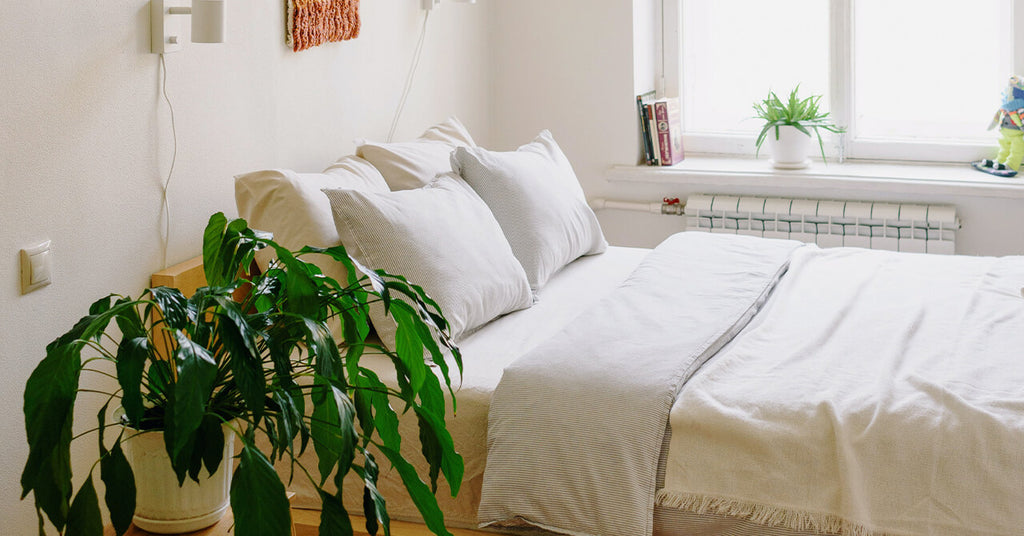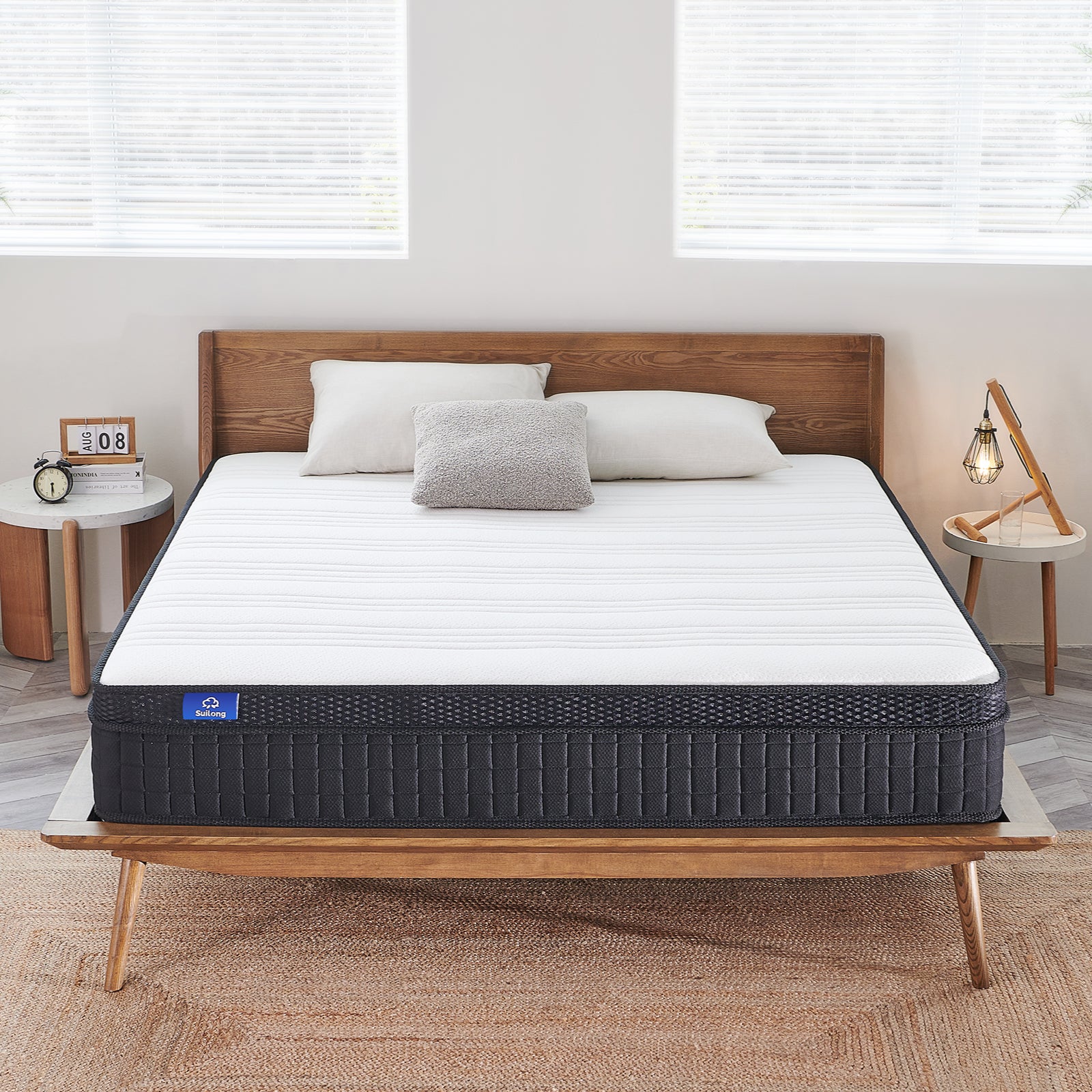Can A Brand New Bed Hurt Your Back?

Ever had an experience like this? Bought a brand new mattress only to wake up in the morning with back discomfort? Choosing a mattress may seem like a simple decision, but it can have a profound effect on our health and our daily lives. To help with this quandary, this article will delve into whether a new mattress can actually cause back pain and how to choose a back-friendly mattress. Sit tight and find out the answers together!
New Bed Causes Back Pain

Adaptation period between the body and the new bed
When you get a new bed, it takes time for your body to adjust to the elasticity and support of the new mattress. This can cause some back muscle tension, especially if the new mattress is very different from the old one in terms of support and comfort.
Bed firmness and back pressure points
The firmness of your mattress directly affects back pressure points. A mattress that is too firm may put too much pressure on the shoulders and hips, while a mattress that is too soft may not be enough to support the spine. These pressure points can lead to back pain.
Differences in Mattress Material and Design
Mattresses made of different materials will provide different levels of support and comfort. For example, a memory foam mattress may provide superior support for some people, but others may find it too soft. Also, the structural design of the mattress, such as the spring arrangement and number of layers, can affect back comfort.
Ways to recognise if a new mattress is causing back pain

Comparison of pain before and after sleeping
By looking at the difference in pain between before going to sleep and after waking up, you can help determine if the mattress is the cause of back pain. If the pain upon waking is significantly higher than before going to sleep, the mattress may be the problem.
Experiment with responses in other sleep locations
Sleep in another bed or with a different mattress for a few nights to see how your back feels. If your back feels comfortable sleeping elsewhere, then it may be a problem with the new mattress.
Changes in activities before and after purchase
Review lifestyle changes before and after purchasing a new mattress. Did the new mattress coincide with a new exercise routine, long hours at work, or other activities that could affect your back? By eliminating other possible causes, you can more accurately determine if the mattress is the problem.
Adjustment time to a new mattress

Adaptation time for different people
Everyone feels and adapts to a mattress at a different rate. Some people may adapt within a few days, while others may take weeks. Physical dexterity, mattress material and individual sleeping habits may all affect the adaptation time.
Acclimatisation period for different mattress materials
Different mattress materials have different adaptation curves. For example, memory foam may take a few weeks to fully adapt to the shape of the body, while a natural rubber mattress may have a shorter adaptation period.
Proper use and placement
Mattresses should be placed on a flat bed frame and avoid placing objects underneath the mattress, all of which can reduce the acclimatisation period. The right sheets and bedspreads can also add comfort and help the body adjust to the new mattress.
Tips for preventing and relieving back pain in bed

Choose the right pillow and bedding
The height and material of your pillow can affect neck and back support. Pillows that are too high or too low can cause tension in the neck and back. Also, suitable sheets and bedspreads can increase comfort.
Adjust and Improve Sleeping Posture
Sleeping position is critical to back health. Sleeping on your side can help reduce pressure on your back and neck, but make sure your knees are slightly bent, and using a pillow or cushion between your knees can provide further support. When sleeping on your back, using a low pillow and placing a small pillow or rolled up blanket below your waist can help maintain the natural curve of your spine.
Regular Stretches and Exercises
Specific back stretches and exercises can help relieve and prevent back pain. For example, cat-cow stretches, bridge lifts and partial curls are all effective back exercises.
Avoid staying in one position for long periods of time
Staying in one position for long periods of time, whether sitting, standing or lying down, can lead to tension in your back muscles. Change positions every 30 minutes to an hour for a light stretch.
Choose the best type of mattress for back health

Consider an individual's weight and body shape
Different body weights and body shapes may require different types of mattress support. For example, a heavy body weight may need a firmer mattress, while a lighter body weight may be better suited to a softer mattress.
Understanding the materials and properties of different mattresses
For example, a corrugated cotton mattress offers good breathability and adaptability, but may lack durability. An all-natural latex mattress, on the other hand, offers superior support and durability.
Read and Refer to Consumer Reviews
Knowing the feedback of other consumers can provide you with valuable information about whether a particular mattress is truly back-friendly.
Memory Foam Mattresses for Backs

Memory Foam Responsiveness and Body Temperature
Memory foam becomes soft in response to body heat and is able to mould to the shape of the body, providing customised support for the back.
Adaptability and pressure release
The adaptability of memory foam means it reduces the gap between your body and the mattress, which in turn reduces pressure points and back pain.
Disadvantages of Memory Foam
For some people, memory foam can feel overheated. Also, an overly soft memory foam mattress may not provide enough spinal support, leading to back pain.
Choosing the right mattress is not only about a good night's sleep, it's also about the health and long-term comfort of our backs. When choosing a mattress for yourself or your family, it's good to take this knowledge and advice into consideration. After all, we all deserve a healthy sleep environment. If you have any other questions about choosing a mattress or would like to learn more healthy sleep tips, please feel free to leave a comment and we'll endeavour to provide you with more help and advice. Healthy sleep starts with choosing the right mattress!"
FAQ
Q: Can a brand new mattress cause immediate back pain?
A: Yes, a new mattress can cause immediate back pain, especially if it's significantly different in firmness or support from your previous one. It might take your body some time to adjust to the new sleeping surface.
Q: How long should I give my body to adjust to a new mattress before deciding it's not right for me?
A: Typically, it's recommended to give your body at least 30 days to adjust to a new mattress. If you're still experiencing discomfort after this adjustment period, it may be a sign that the mattress is not suitable for your specific needs.
Q: Are memory foam mattresses better for back pain than traditional spring mattresses?
A: Memory foam mattresses can offer better contouring and pressure point relief, which can be beneficial for some people with back pain. However, the best type of mattress for back pain varies depending on individual preferences, body type, and specific back issues. It's essential to choose a mattress that provides adequate support and comfort for your needs.
Q: What signs indicate that my mattress is too firm for me?
A: If you wake up with numbness, stiffness, or sharp pains, especially in the shoulders, hips, or back, it might indicate that your mattress is too firm. Additionally, if you feel that most of your weight is on your hips and shoulders rather than being distributed evenly, the mattress may be too hard for your body type.
Q: How can I modify a mattress that feels too firm to make it more comfortable?
A: If your mattress feels too firm, you can consider adding a mattress topper, preferably made of memory foam or latex, to provide additional cushioning. It can help in contouring to your body better and alleviate pressure points. Remember to choose a topper thickness based on your comfort preference and body type.
-
Posted in
best sleeping position, Buyer's Guide, hybrid mattress, Mattress Buying Guide, Mattress thickness, Mattress Tips, memory foam mattress Advantages, Memory Foam Mattress Benefits, memory foam mattress versus hybrid mattress, Shopping Tips, Sleep Experts, sleep position, Sleep Tips, sleeping positions, soft Mattress, the type of mattress
















